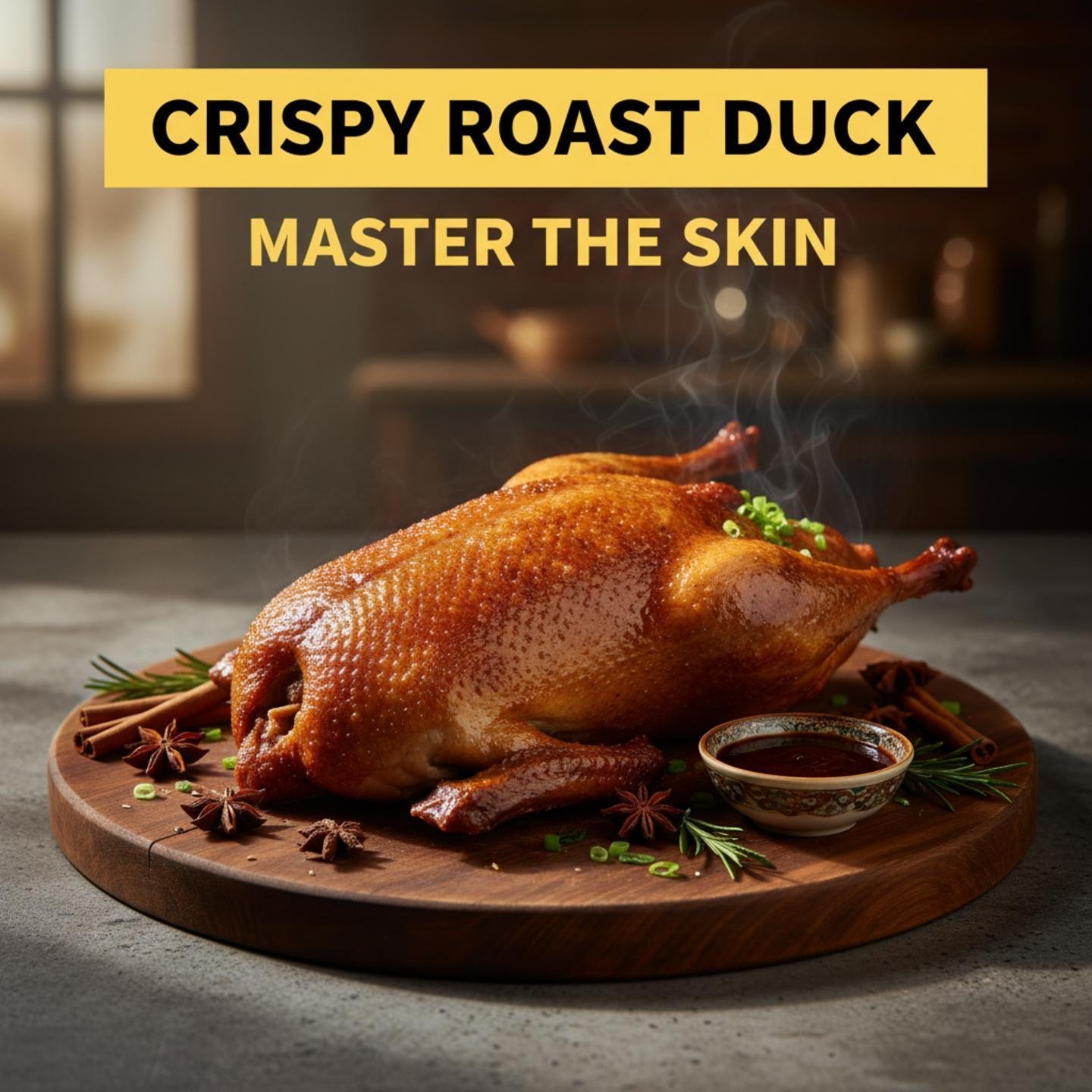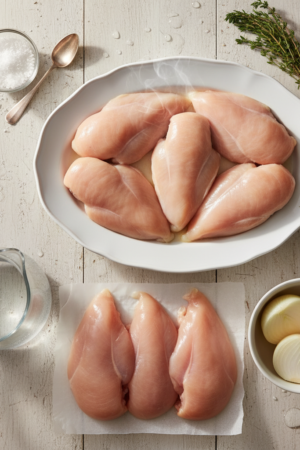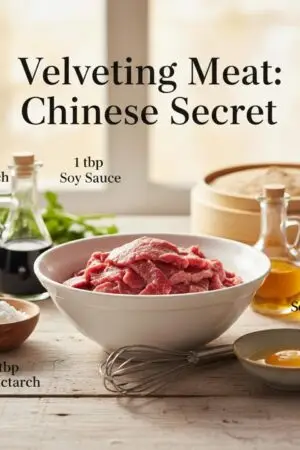This recipe guides you through achieving restaurant-quality crispy skin on your roast duck, ensuring tender, juicy meat every time. A classic dish, perfect for special occasions or a luxurious meal.

Crispy Roast Duck: Master the Skin
This recipe guides you through achieving restaurant-quality crispy skin on your roast duck, ensuring tender, juicy meat every time. A classic dish, perfect for special occasions or a luxurious meal.
Ingredients
- 1 whole duck 5-6 lbs
- 2 tbsp kosher salt
- 1 tsp black pepper freshly ground
- 0.5 cup boiling water for blanching
Instructions
- Preheat oven to 300°F (150°C). Remove duck from packaging, remove giblets and neck from the cavity. Pat the duck thoroughly dry with paper towels, inside and out. Trim excess fat from the cavity and neck.
- Using a sharp knife, score the duck skin in a diamond pattern, being careful not to cut into the meat. This allows fat to render efficiently.
- Place the duck breast-side up in a large roasting pan with a rack. Pour boiling water evenly over the duck skin. This will tighten the skin, promoting crispiness. Immediately pat the duck completely dry again with paper towels. This step is crucial.
- Season the duck generously all over with kosher salt and freshly ground black pepper. If desired, stuff the cavity with aromatics like orange halves or herbs.
- Roast the duck breast-side up for 1.5 to 2 hours at 300°F (150°C) to render the fat slowly. Periodically drain the rendered fat from the roasting pan.
- Increase the oven temperature to 400°F (200°C). Continue roasting for another 45-60 minutes, or until the internal temperature of the thickest part of the thigh reaches 175°F (80°C) and the skin is deeply golden brown and very crispy.
- Once cooked, remove the duck from the oven and transfer it to a cutting board. Tent loosely with foil and let it rest for 15-20 minutes before carving. This allows the juices to redistribute, ensuring tender meat.
Notes
For extra flavor, stuff the duck cavity with quartered oranges, onions, and fresh herbs like thyme or rosemary. Save the rendered duck fat for roasting potatoes or vegetables. Carve the duck after resting to retain juices and ensure maximum tenderness.






